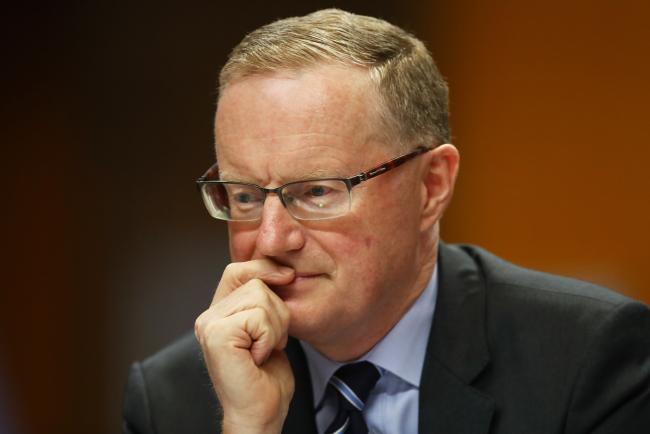(Bloomberg) -- Australia’s central bank chief said he’ll consider cutting interest rates at next month’s meeting to spur faster hiring, saying that the jobless rate needs to move below 5% to help drive inflation back to its target.
“A lower cash rate would support employment growth and bring forward the time when inflation is consistent with the target,” Reserve Bank Governor Philip Lowe said in the text of a speech in Brisbane Tuesday. “Given this assessment, at our meeting in two weeks’ time, we will consider the case for lower interest rates.”
The RBA’s concession that easier policy is required comes as labor market slack remains and amid persistent evidence that households are reining in spending and slowing the economy. Unemployment climbed to 5.2% in April and inflation in the first three months of this year was tepid. The Australian dollar dropped on Lowe’s (NYSE:LOW) comments, buying 68.98 U.S. cents at 1:13 p.m. in Sydney.
“The labor market has surprised on the upside over recent times, and it could do so again,” said Lowe. “While we can’t rule out this possibility, the recent flow of data makes it seem less likely.” Still, Lowe said it was possible that current policy settings were sufficient to deliver lower unemployment.
Lowe didn’t mention Australia’s May 18 election, which led to a surprise victory for Scott Morrison’s coalition government. Some economists had said the RBA’s decision not to cut on May was to avoid becoming involved in the campaign. Earlier, the central bank published minutes of that meeting.
Over the past three years, household disposable income has increased at an average pace of just 2.75%, compared with an average 6% over the preceding decade. The RBA predicts it will accelerate to 4% in the next couple of years, mainly due to government tax relief.
The central bank earlier this month lowered its forecast GDP growth and Lowe acknowledged in his speech that the reduction would’ve been deeper if the estimates didn’t incorporate market pricing for two rate cuts that would bring the cash rate to a record-low 1%.
Australia’s weakening economy has been reflected in slower global growth; similarly, the contradiction between relatively low unemployment and little inflation is also being played out internationally, suggesting these are worldwide factors.
Overlaying the downturn Down Under has been a tumble in house prices that has eroded household wealth and added to nervousness among consumers. At an international level, there is also the unresolved trade dispute between the U.S. and China.
“Over the past year, global trade has not grown at all,” Lowe noted. “This is unusual as, historically, global trade has tended to increase at least as fast as GDP. This recent weakness partly reflects the slowing in the Chinese economy, but the increases in U.S. and Chinese tariffs are also a factor.”
